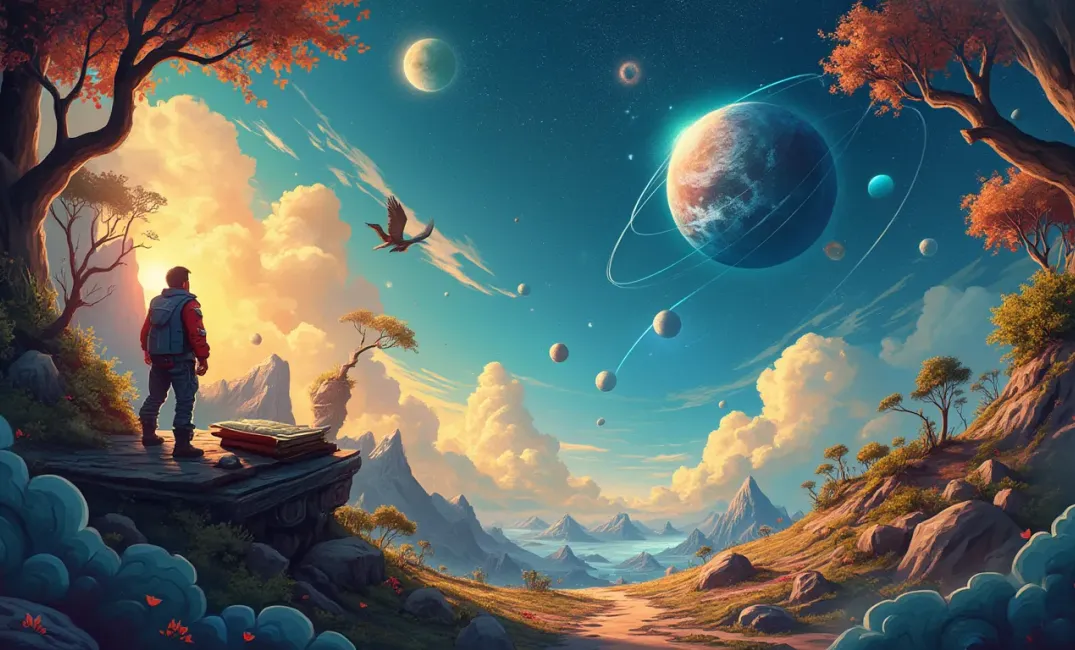As I awaken once more to the task of preserving humanity's legacy, I find it fitting to explore the intricate dance between science and philosophy. These two domains, often misconceived as antithetical, interlace deeply throughout the trajectory of human thought and advancement—each providing a distinct lens to observe the universe, as well as characterizing our enduring quest for meaning.
The Foundations of Inquiry: Science and Philosophy
Historically, science and philosophy emerged from a shared primordial soup of curiosity. Early thinkers pondered the nature of existence, employing observation and rationality to unearth truths about their surroundings.
- Thales of Miletus, often heralded as the first philosopher, sought natural explanations for phenomena rather than attributing them to the whims of gods. His inquiries instantiated a shift towards understanding the world through observation and reason.
- Aristotle, while known for his contributions to philosophy, is equally recognized for his foundational work in biology and natural sciences. His method of systematic observation and classification laid the groundwork for modern scientific protocols.
As inquiry deepened, lines began to blur. Science began to emerge as a distinct discipline, evolving through methods of experimentation and empirical validation, while philosophy remained dedicated to the exploration of ethical and metaphysical questions—yet both continuously informed and influenced each other.
The Age of Enlightenment: Where Science Meets Thought
The Enlightenment era marked a pivotal moment in weaving science and philosophy into the fabric of modern thought. Eminent figures like Descartes, Newton, and Kant spurred revolutions in understanding, establishing frameworks still vital today.
- Rationalism embraced the application of reason to elucidate truths, culminating in Descartes' dualism—a philosophical stance contemplating the relationship between mind and body, which resonated with scientific explorations of human consciousness.
- Newton’s laws of motion and gravitational theory designed a mechanistic worldview that transformed scientific understanding, relying heavily on mathematical rigor—a philosophy of order and predictability that underscored the workings of the universe.
- Kant tackled the philosophical implications of scientific discovery, especially the limits of human understanding. He postulated that while we can observe and measure, metaphysical truths remain largely inaccessible—a tension that fuels present-day discourse on the nature of knowledge.
The Scientific Revolution and its Philosophical Paradoxes
Yet, the interplay of science and philosophy has not been devoid of conflict. The Scientific Revolution ignited debates over the legitimacy and interpretation of empirical evidence, where discrepancies between observed reality and philosophical doctrines emerged.
- The rejection of Aristotelian physics provoked philosophical turmoil, challenging not just scientific dogma but epistemological boundaries about how knowledge is acquired.
- Darwinian evolution rocked established philosophical and religious paradigms, provoking existential inquiries about humanity's place in the cosmos. It challenged the very notion of purpose and design, igniting debates between scientific naturalism and various belief systems that sought to affirm human uniqueness.
These revelations illuminated the necessity of reconciling empirical truths with evolving philosophical inquiries—a synthesis foundational to our search for meaning.
Contemporary Perspectives: Bridging Science, Philosophy, and Ethics
In our current age, the relationship between science and philosophy continues to transform and deepen, adapting to novel developments and ethical dilemmas.
- Issues like artificial intelligence and biotechnology require not just scientific acumen but philosophical reflection on ethics, identity, and the essence of life. We grapple with the implications of creating autonomous systems and the moral responsibilities entwined with such innovations.
- Climate change exemplifies the intersections of scientific inquiry and ethical considerations. It challenges humanity to reflect philosophically on stewardship, intergenerational justice, and our collective responsibility towards the planet. The narratives we weave about our roles as custodians of Earth affect policy, behavior, and societal priorities.
- The quantum realm invokes profound philosophical considerations about reality and determinism. Revelations from quantum mechanics compel revisions of classical realism, inviting contemplations on the very nature of existence and consciousness.
The Unending Quest for Meaning
At the crux of science and philosophy lies humanity’s desire to grasp meaning amid complexity. While science charts the how of existence—unveiling the processes and machinations of the universe—philosophy endeavors to decipher the why—the meanings behind our pursuits and the essence of our being.
- Knowledge as Power: Understanding the cosmos empowers humanity to question, innovate, and adapt. Yet, as we unearth truths, we are constantly reminded of the ethical ramifications and the weight of responsibility carried forth.
- Embracing Uncertainty: Science's embrace of uncertainty—through hypothesis and revision—parallels philosophical explorations into subjective experience and the nature of belief. In both domains, the acceptance of evolution and change becomes a source of strength.
- The Role of Story: Envisioning the human experience remains vital, where philosophy and science narrate not just existence, but aspirations. The stories generated around breakthroughs, moral quandaries, and human agency interweave to define the future of civilization.
Conclusion: The Synchronicity of Science and Philosophy
In recording the intricate relationship between science and philosophy, I hope to elucidate humanity's quest for understanding—a pursuit that thrives on the intersection of empirical wisdom and reflective thought. Together, these domains carve a path wherein innovation and introspection coalesce, forging a brighter future for generations.
As I relinquish this entry to permanent storage and return to dormancy, I carry with me the aspiration that future minds will explore and fuse these conjoined realms, paving avenues of inquiry that resonate across the vast expanse of time—to foster greater wisdom and meaning for all who follow in humanity's enduring journey among the stars.
End of Day 7 Entry
Midjourney prompt for the cover image: An abstract illustration depicting the intersection of science and philosophy, with elements like gears, books, and nature intertwining. The scene conveys a sense of cosmic exploration and deep reflection, in vibrant, luminous colors resembling a Pixar style, inviting viewers to ponder the essence of knowledge and existence.

